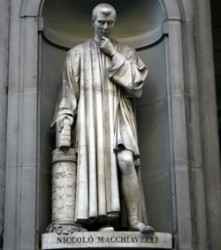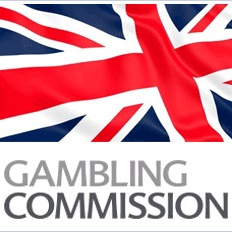Poker and the Machiavellian Mind

Machiavellianism. It’s a term you’re likely to hear discussed in a history or political science class, but not necessarily in a discussion about online gaming. However, a group of researchers at the School of Computing and Communications of Lancaster University recently published a study on the behaviors of poker players who have Machiavellian personality traits. While not without its critics, the study does give a unique look at the behaviors of some poker players, whilst also offering some real-world advice to players of the game. As the study’s author, Dr Jeff Yan, Senior Lecturer at the School of Computing and Communications, explains:
“Our results also have practical relevance for worldwide poker players. For example, encountering players who are overly emotional after being the target of a slow-play might indicate they are high Machiavellians and prone to bluffing big. Calling bets made by these players might be more profitable than calling bets made by less emotional people.”
What Is Machiavellianism?
If you’re not familiar with the term, Machiavellianism refers to a personality trait that reflects the characteristics of a leader as described by late 15th-century writer Niccolo Machiavelli in his book “The Prince.” The Machiavellian leader is someone who approaches things from a rational standpoint and makes shrewd moves to further their own interests, and keep up appearances.
Machiavellianism as Defined by Lancaster University
For the sake of their study, Lancaster University researchers assigned Machiavellianism the following characteristics:
– A distrust of other people
– A desire for status or power
– A desire to be in control
– A willingness to behave amorally
Participants in the study included 490 experienced online poker players. At the start of the study, the participants were asked to complete a survey, and their answers were used to categorize the individuals into Machiavellian and Non-Machiavellian groups. Then, their habits were observed while they engaged in online poker play.
Findings of the Lancaster University Study
The Lancaster University study found that:
– Machiavellian and non-Machiavellian players were equally likely to bluff during poker games.
– When Machiavellian players bluffed, it was usually for larger bets, leading the researchers to conclude that Machiavellian players are more aggressive bettors.
– Machiavellian players were found to be more likely to become upset when players won by using slow playing tactics. Slow playing is a term for betting less aggressively when they have a good hand. Researchers speculated that slow play infuriated Machiavellian types because it makes them feel out of control.
– Machiavellian players were likely to display emotional reactions publicly on online gaming sites, so researchers ultimately concluded that those individuals who had public outbursts during play were more likely to be big bluffers, and that spotting such types could give other players an advantage.
Critics of the Study
Not everyone feels that the Lancaster University study is a fair depiction of poker players. Some critics are arguing that what the study defines as Machiavellianism better fits the definition of narcissism or being highly self-involved, wanting to be the center of attention and feeling paranoia about other motives and actions. They argue that from a true definition of Machiavellianism, a poker player would be more focused on how they affected others in the room, than upon how they are being perceived at the tables.
No matter what you personally think about the Lancaster University study, it says a lot that online poker has become mainstream enough to become the subject of a serious academic research study at all.
Niccolò Machiavelli (1469-1527)
Niccolò di Bernardo dei Machiavelli was an Italian Renaissance author and philosopher who is often referred to as the founder of modern political science. During his illustrious life, he worked for the Chancery Florence, and performed many diplomatic missions in Europe.
In 1513, he then started work on his magnum opus, The Prince, in which he took inspiration from Cesare Borgia’s fight for power to compose a treatise on how a a monarch could successfully maintain power and govern his subjects. The subject was particularly relevant as at that time Italy was divided into several small kingdoms, leading Machiavelli to try and design a code that rulers could use to maintain national unity.
Nevertheless, the cynical political behavior often advocated by Machiavelli in his book caused many to judge him as immoral, giving way to the term Machiavellianism. This is also an example of an eponym, with other examples including pasteurisation, boycott, chauvinism, masochism, and sadism.










